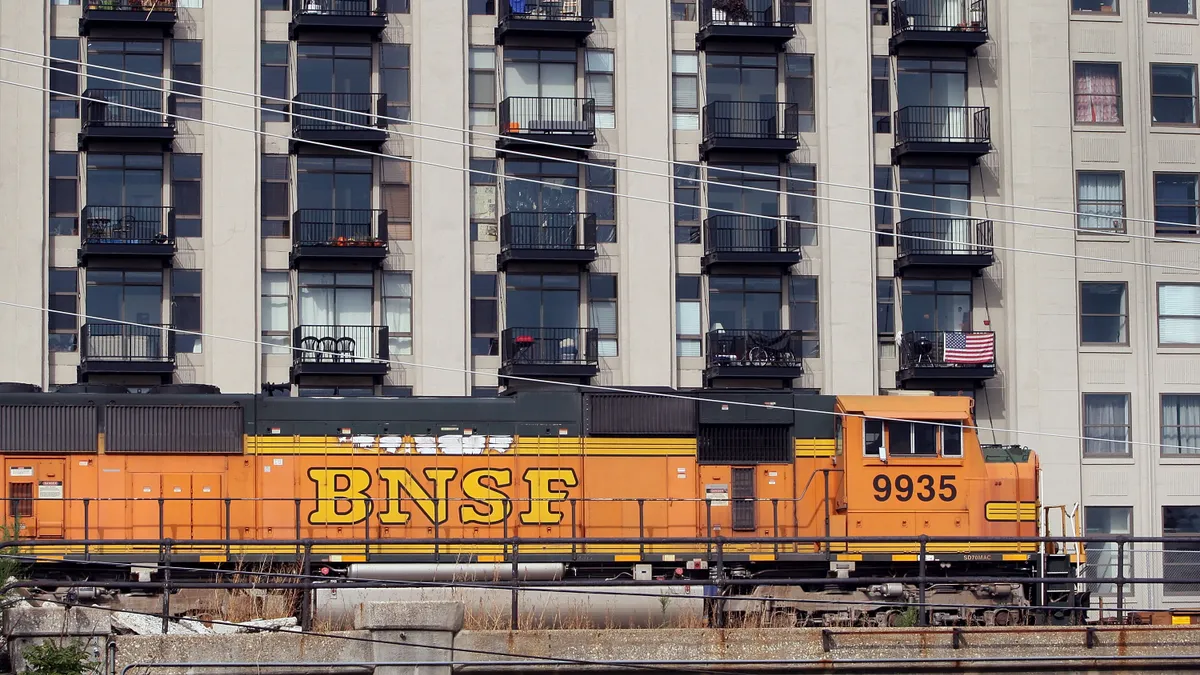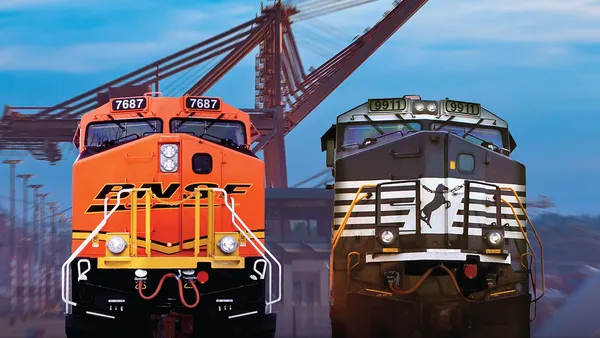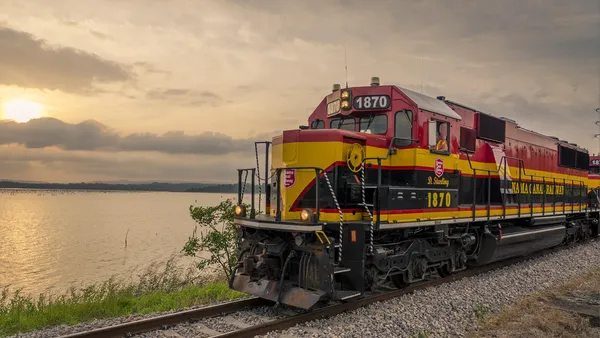Dive Brief:
- BNSF is limiting shipments of food, diesel and other commodities into California after labor constraints and severe weather exacerbated congestion, according to a Thursday customer notification.
- The railroad said it will issue a temporary embargo until July 31 for all commodities destined to California from Illinois, Texas and 12 other states within the BNSF network. Commodities essential to public welfare such as military equipment and water treatment chemicals will be exempt from the embargo July 6.
- Companies can request a permit to ship to embargoed destinations, depending on the type of commodity, the notice said. The embargo will not extend to intermodal cargo, which “are being managed through alternate means.”
Dive Insight:
Although a slowdown in rail service had caught the attention of federal regulators in recent months, shippers say the situation has yet to improve.
“This problem is bad. And it's not getting better anytime soon,” said Eamon Monahan, vice president of environmental affairs and workplace safety of the Corn Refiners Association.“What we see in the food industry is now daily disruption of industry operations because of rail service failures, and that was not occurring at the end of last year.”
There are more than 160 rail embargoes currently approved or in effect across Class I and shortline railroads, according to an Association of American Railroads database maintained by Railinc.At least 135 of the embargoes are for congestion or preventing congestion.
BNSF’s embargo impacts its Southern Transcon corridor running from Chicago to Southern California, which it called its “core intermodal artery” in a June 23 filing to the Surface Transportation Board. The railroad acknowledged that the embargo could exacerbate service problems for producers of products critical to public welfare such as fuel, military equipment and water treatment chemicals.
BNSF service delays
“BNSF is aware of the impact that our service issues can have on commodities that are more essential to the public welfare, and our approach to this embargo reflects that sensitivity,” the railroad wrote.
In its filing, BNSF said it has “experienced a number of service interruptions that impacted numerous lines of business” over the past few months, including staffing issues and severe weather events such as high winds and flooding. Chassis constraints further inland have also caused backups in Chicago-area terminals, and BNSF has had to park some eastbound cargo off the main track to wait for the congestion to clear.
With those disruptions slowing service, shippers have added more cars to the network “in the hopes that increased orders would allow them to get their needed volumes as expected,” BNSF said. The move had the opposite effect, further decreasing velocity and “leading ultimately to the delivery of less product for all of our customers.”
The railroad said the embargo is necessary to keep the network fluid, particularly ahead of the July 4 holiday when it expects a rise in employees taking vacation time. To increase crew availability, BNSF is offering vacation buybacks and has temporarily transferred crew members from other parts of the network to the Southern Transcon corridor.
As it works to improve Southern California service, BNSF will lease 75 locomotives and adjust trip plans so trains can bypass the most troubled part of the network. The railroad is also working the San Pedro Bay ports to improve slot allocations and ensure cargo headed to Chicago will have sufficient truck and chassis capacity once it arrives. BNSF said 28 trains were waiting for arrival slots at Chicago intermodal facilities at the beginning of the week of June 20.
“While we are encouraged by our overall trends and starting to see some green shoots in our challenged areas, our overall message is that recovery in those challenged parts of our network remains choppy,” the company wrote in its filing.













